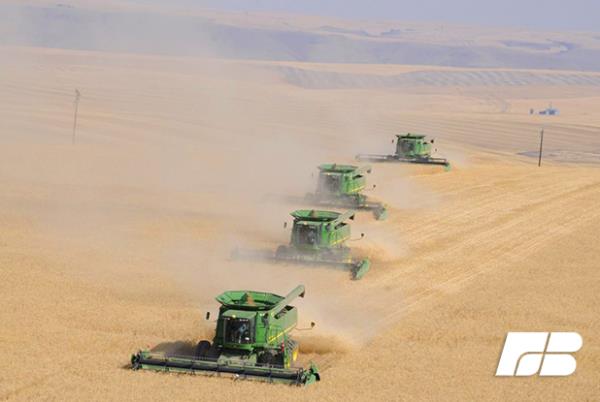US, Japan to ink trade agreement

Boise – President Donald Trump announced Sunday that the United States and Japan have reached a trade agreement.
The deal keeps US and Idaho Wheat flowing into Japan.
“This trade agreement benefits Idaho growers by ensuring that the Japanese market remains open to wheat grown in the U.S.,” said Ned Moon, chairman of the Idaho Wheat Commission.
Japan is a key export market for Idaho Farmers since the 1950s.
“We’ve worked on this deal with Japan for a long time,” said Trump from the G-7 summit Monday morning in Biarritz, France.
“It involves agriculture and it involves e-commerce and many other things. It’s a very big transaction, and we’ve agreed in principle, said Japanese Prime Minister Shinzo Abe.
Over the past half century, US wheat farmers built a strong demand for specialty wheat among Japan’s flour millers using several classes of the grains grown in Idaho, the Pacific Northwest and the Midwest.
“Idaho growers have exported wheat to Japan for more than six decades. Japan typically sends a trade team to Idaho each year and the Japanese flour mills particularly prefer soft white wheat, which is ideal for their sponge cakes and pastries,” said Moon
When the Comprehensive and Progressive Trans-Pacific Partnership agreement started last December, without the United States, the tariffs on imported Canadian and Australian wheat declined. Locked out of the agreement, U.S. wheat imports would have become less cost-competitive and Japan’s flour millers would have bought wheat from the CPTPP member countries.
Both Trump and Abe expect to sign the deal at the United Nations General Assembly next month in New York. They asked aides to speed up negotiations in order to have the final agreement prepared in due time.
“We’ve agreed to every point and now we’re papering it and we’ll be signing it at a formal ceremony,” Trump said.
The deal helps protect U.S. exports, exports that make-up half of the Japanese wheat market, with average annual sales of three million metric tons worth at least $700 million per year.
Japan is also considering buying a chunk of the US corn surplus, that’s another part of the deal that US Trade Representative Robert Lighthizer described as “extremely important to our farmers and ranchers.”
“We have excess corn in various parts of our country and Prime Minister Abe and Japan they’re going to be buying all of that corn,” said President Trump.
Still can't find what you are looking for? Find by topic:
- Achievement Award (YF&R)
- Actions Alerts
- Advocacy
- Ag Ambassadors
- American Farm Bureau
- American Farm Bureau Policy Book
- Archive Photos
- Articles
- Board of Directors
- Calendar - State/District
- Calendar - County
- Capitol Reflections
- Collegiate Chapters
- Committee Application Form
- Commodities
- Convention Annual
- County Presidents & Board Information
- County Resource Page
- Delegate Form
- Discount Programs
- Discussion Meet
- Discussion Meet - High School
- Education Programs
- Events
- Excellence Award (YF&R)
- Expense Voucher
- Flickr
- Gem State Producer
- High School Discussion Meet
- High School Speech Contest
- Hope in Idaho Ag
- House of Delegates Credentials Form
- IFBF Board of Directors
- IFBF Policy Book
- IFBF Staff
- Insurance
- Legislative Action Program
- Legislative Issues
- Library
- MAC Trailer
- Magazines
- Map My Benefits
- Member Benefits
- Member Discount
- Membership Application
- Mission Statement
- Moving Agriculture to the Classroom
- Newsletter Sign up
- News Releases
- News Room
- Open Range Law
